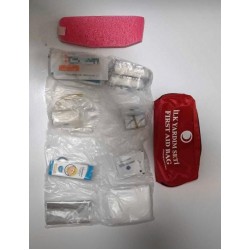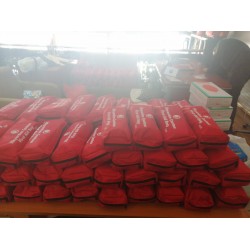
CONTACT US: +90 532 494 11 78
HIGH QUALITY TEXTILE FROM TURKIYE.ASK FOR PRODUCTS
best textile exportTurkey is known for its vibrant textile industry, and it has gained a reputation as one of the top textile exporters in the world. The country's exceptional textile exports can be attributed to its rich history in textile production, high-quality products, and competitive pricing. The Turkish textile industry produces a wide range of products, including clothing, home textiles, and fabrics. With an extensive network of manufacturers and suppliers, Turkey caters to the global market with its diverse range of textile products. Through continuous innovation and investment in technology, Turkish textile companies have been able to maintain their position as leaders in the global textile export market.
Top 5 Countries for Textile Export: Exploring the Best Opportunities
When it comes to textile export, there are several countries that stand out as top destinations. These countries not only have a strong textile industry but also offer great opportunities for businesses looking to expand their export market. In this article, we will explore the top 5 countries for textile export and the advantages they offer.
1. China
China is undoubtedly the leader in textile production and export. It has a well-established infrastructure and a wide range of textile products to offer. From clothing to home textiles, China has it all. The country's competitive pricing and efficient supply chain make it a favorite destination for businesses seeking bulk orders.
2. India
India is another major player in the global textile market. With its rich heritage of traditional textile techniques and skilled craftsmanship, India offers unique and high-quality textile products. The country's diverse range of fabrics, such as silk, cotton, and wool, make it a preferred choice for buyers looking for variety.
3. Bangladesh
Bangladesh has emerged as a strong contender in the textile export industry in recent years. The country's low labor cost and government incentives have attracted many international textile brands. Bangladesh specializes in producing ready-made garments and is known for its efficient production capabilities.
4. Vietnam
Vietnam has seen steady growth in its textile export industry, thanks to its competitive pricing and good quality products. The country offers a favorable business environment with abundant labor resources and a growing textile infrastructure. Buyers often choose Vietnam for its fast turnaround time and reliable supply chain.
5. Turkey
Turkey is known for its high-quality textile products and innovative designs. The country has a well-developed textile industry and offers a wide range of products, from luxury clothing to home textiles. Turkey's geographical location also gives it a strategic advantage in terms of logistics and transportation.
Textile export refers to the business of selling textile products, which include fabrics, clothing, home textiles, and related items, to international markets. The textile industry is a significant sector in many countries, and textile exports play a vital role in their economies. Here's an overview of the key aspects related to textile exports:
Textile Products: Textile exports can encompass a wide range of products, including:
- Fabrics: Different types of woven and non-woven textiles, such as cotton, silk, wool, polyester, and more.
- Apparel: Garments for men, women, and children, which can include casual wear, formal wear, sportswear, and more.
- Home Textiles: Items like bed linens, towels, curtains, and upholstery fabrics.
- Technical Textiles: Specialized textiles used in industrial applications, such as automotive textiles, medical textiles, and protective textiles.
- Accessories: Items like scarves, ties, and other fashion accessories.
Export Markets: Textile exporters typically sell their products to a variety of international markets. These markets can include neighboring countries, developed countries, and emerging markets.
Regulations and Standards: Textile exports are subject to various regulations and standards in both the exporting and importing countries. These may involve product quality, safety, labeling, and trade agreements or tariffs.
Quality Control: Ensuring the quality and consistency of textile products is crucial for successful exports. Many exporters maintain strict quality control measures to meet international standards and customer expectations.
Sourcing and Production: Textile exporters may source raw materials locally or internationally and then manufacture their products in factories. In some cases, they may engage in vertical integration, owning the entire supply chain from raw materials to finished products.
Market Research: Understanding the preferences and demands of target markets is essential for successful textile exports. This includes factors like fashion trends, consumer preferences, and cultural considerations.
Logistics: Efficient logistics are critical to delivering textile products to international markets. This includes transportation, customs clearance, and distribution channels.
Sustainability: Sustainability is becoming increasingly important in the textile industry. Many consumers and importers now prioritize eco-friendly and socially responsible products. Textile exporters may need to adhere to sustainability and ethical sourcing practices to meet these demands.
Competition: The textile export market is highly competitive, with many countries and companies vying for market share. Differentiation, cost-effectiveness, and branding are important factors in competing effectively.
Market Entry Strategies: Textile exporters may use various market entry strategies, such as exporting directly to retailers or distributors, establishing partnerships or joint ventures, or participating in trade shows and exhibitions.
Economic Impact: Textile exports can significantly impact a country's economy by contributing to foreign exchange earnings, creating employment opportunities, and stimulating economic growth.


















